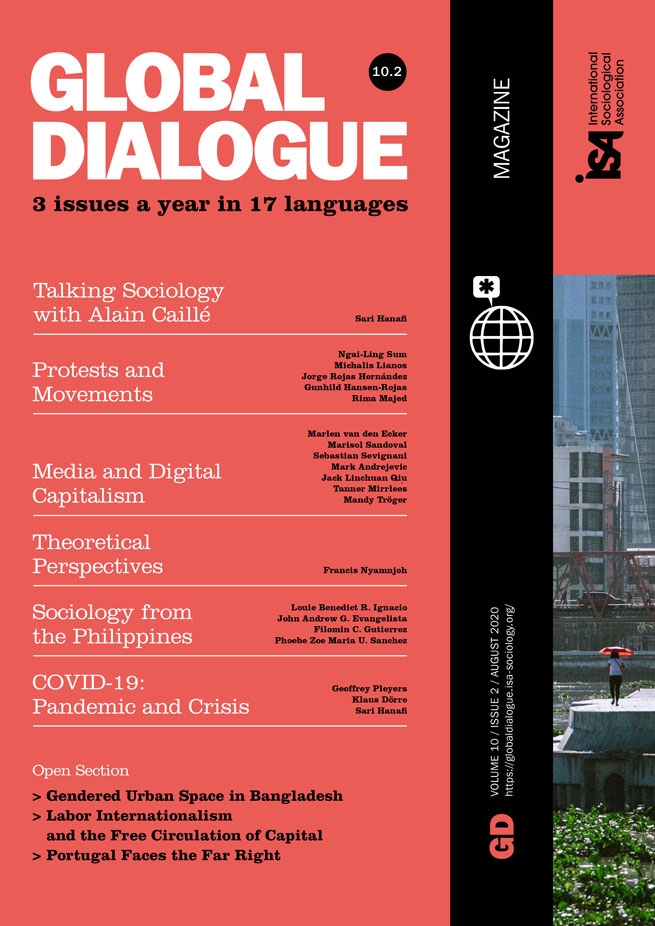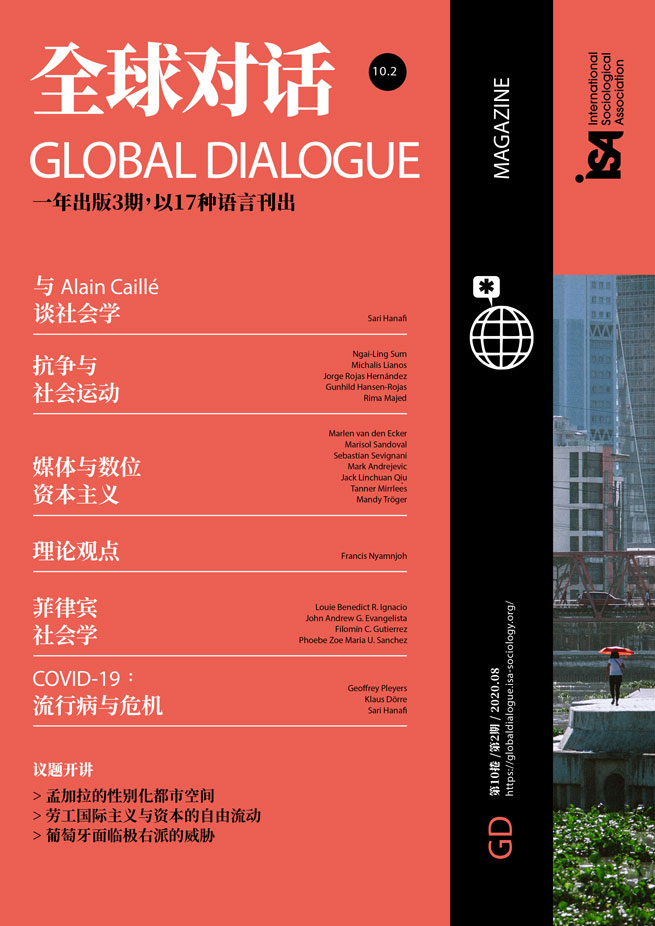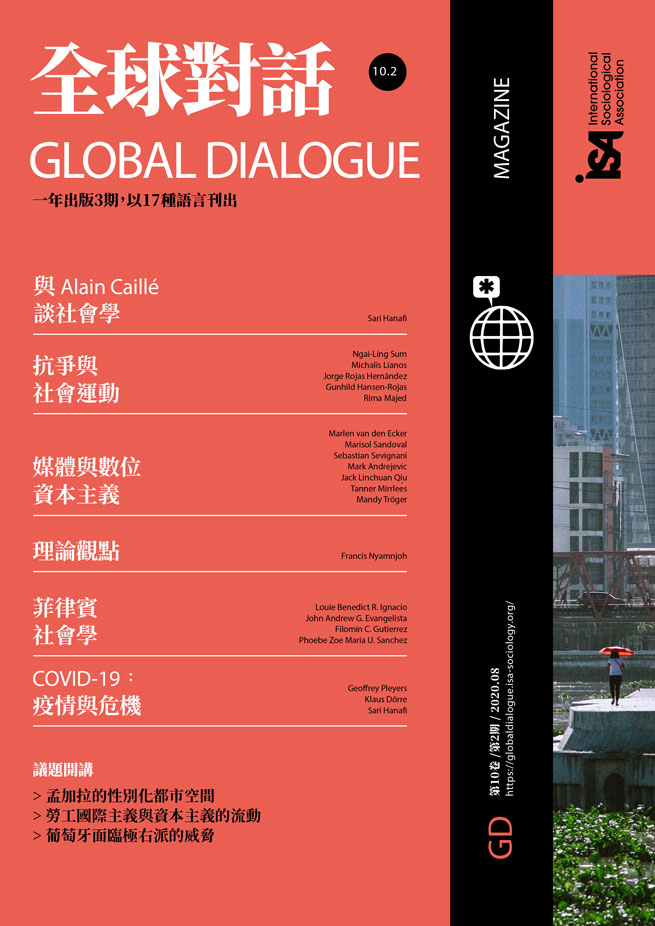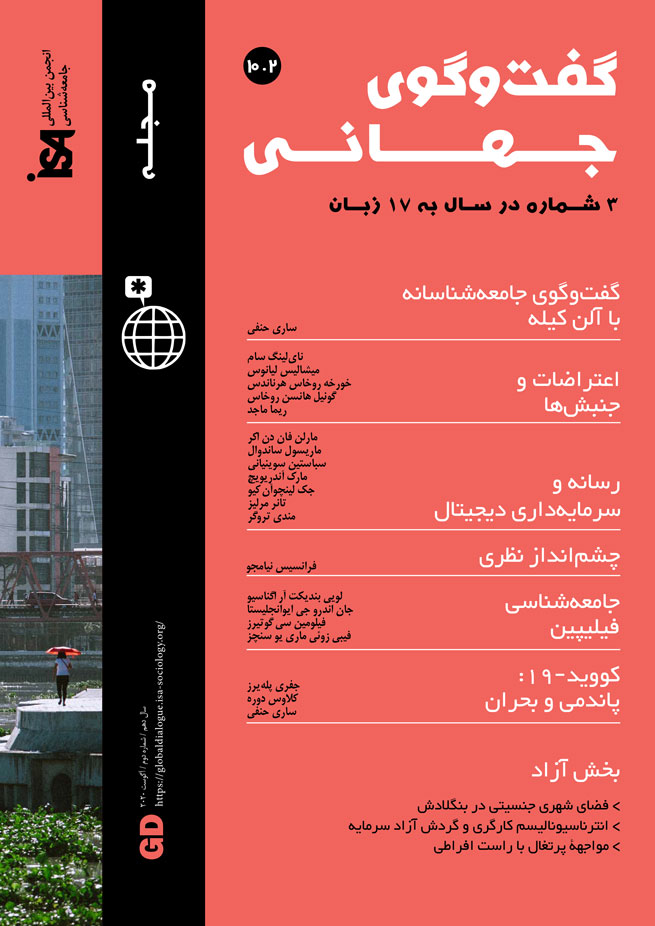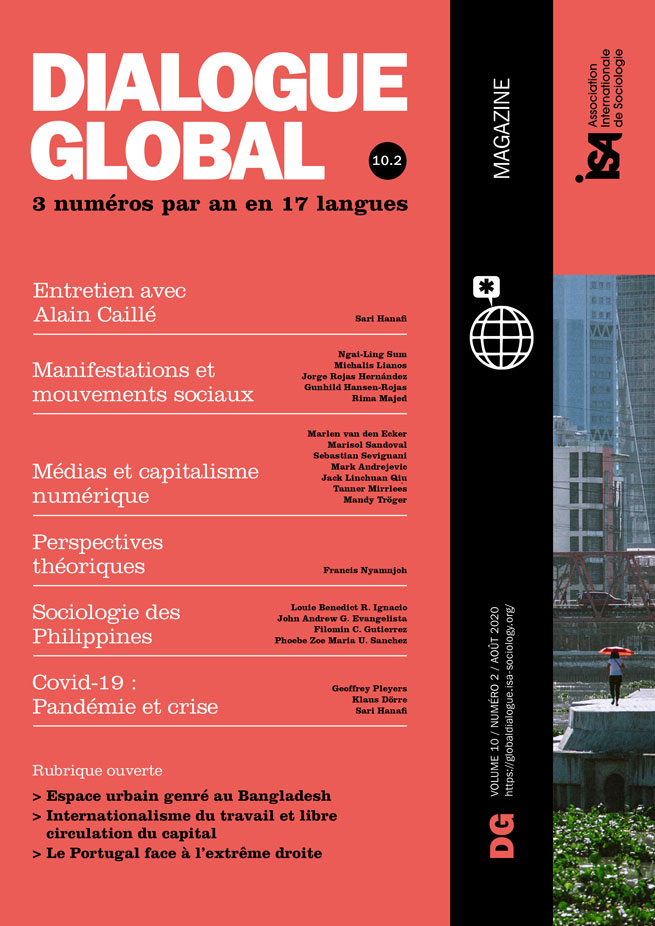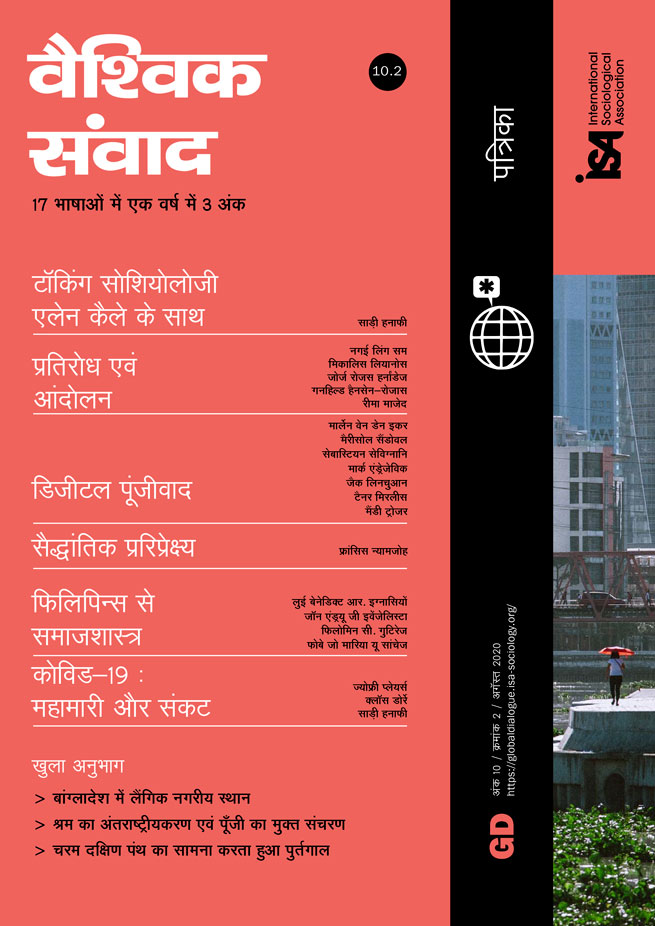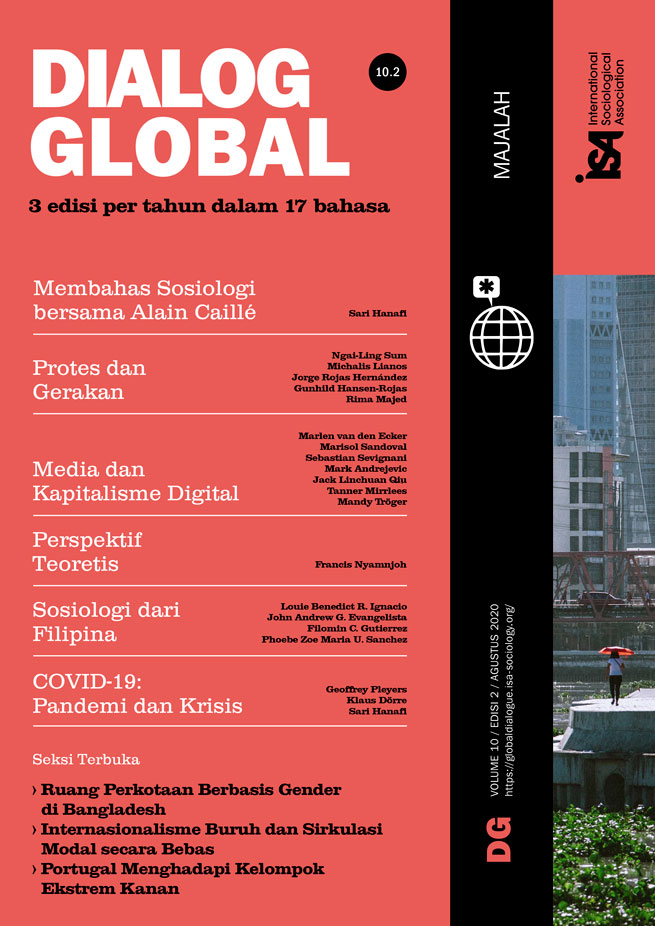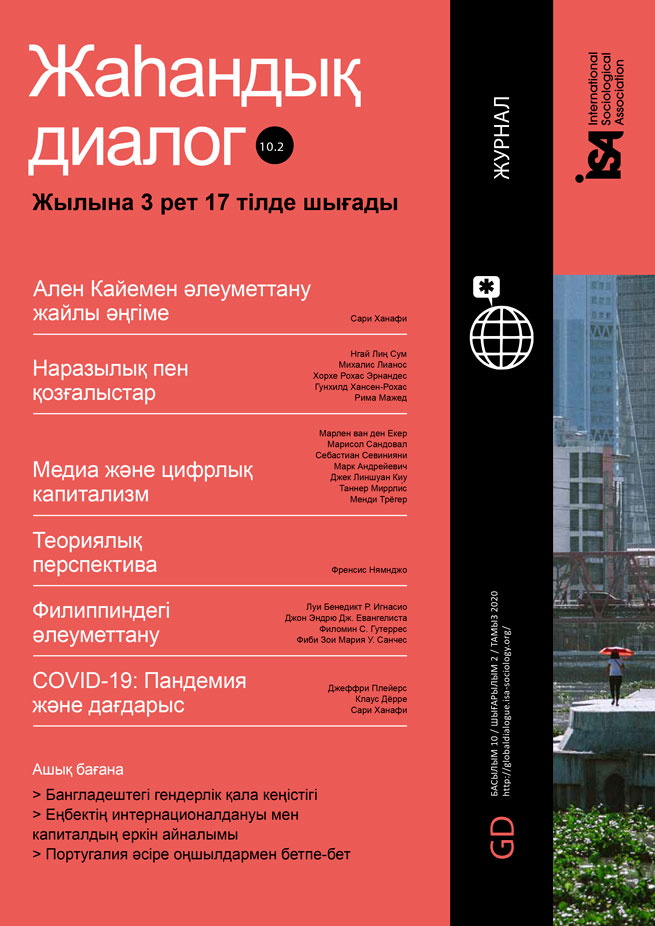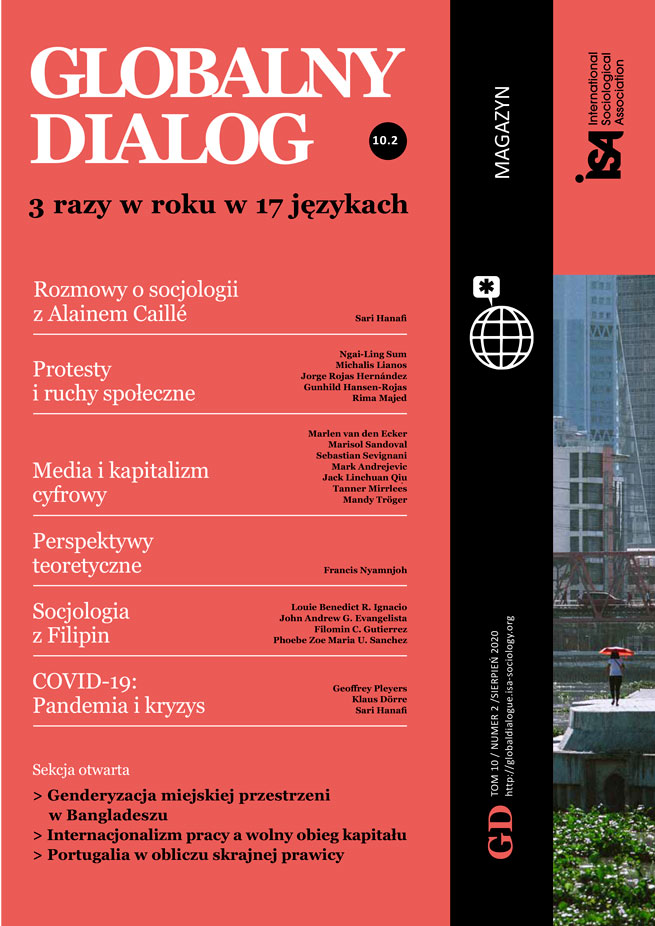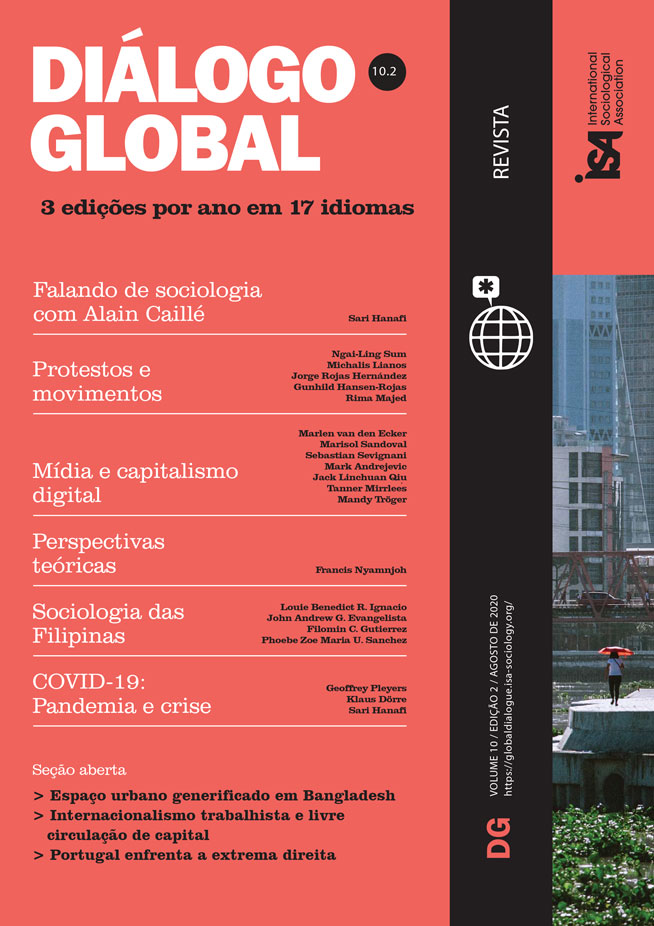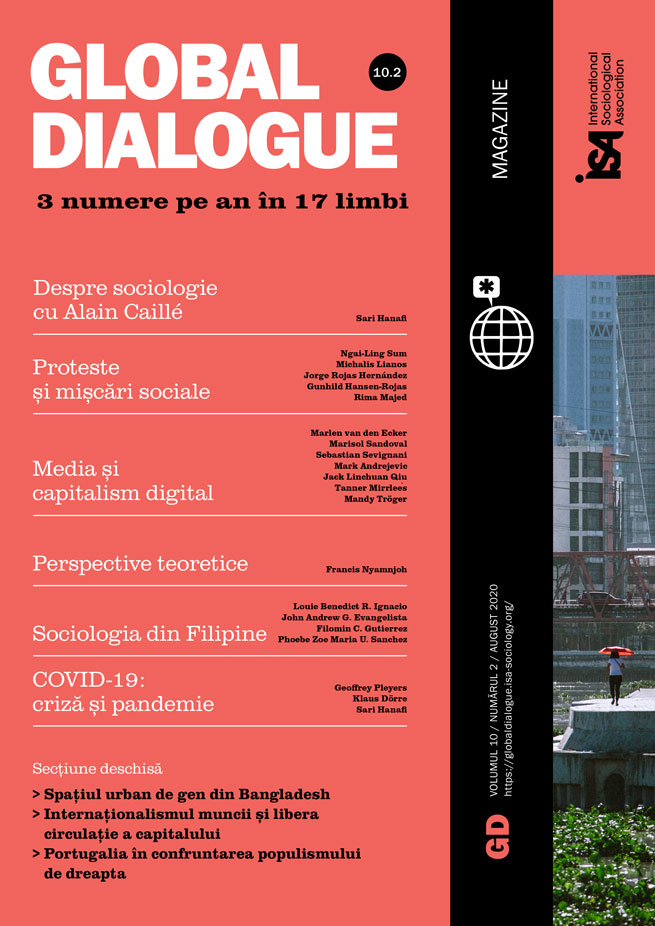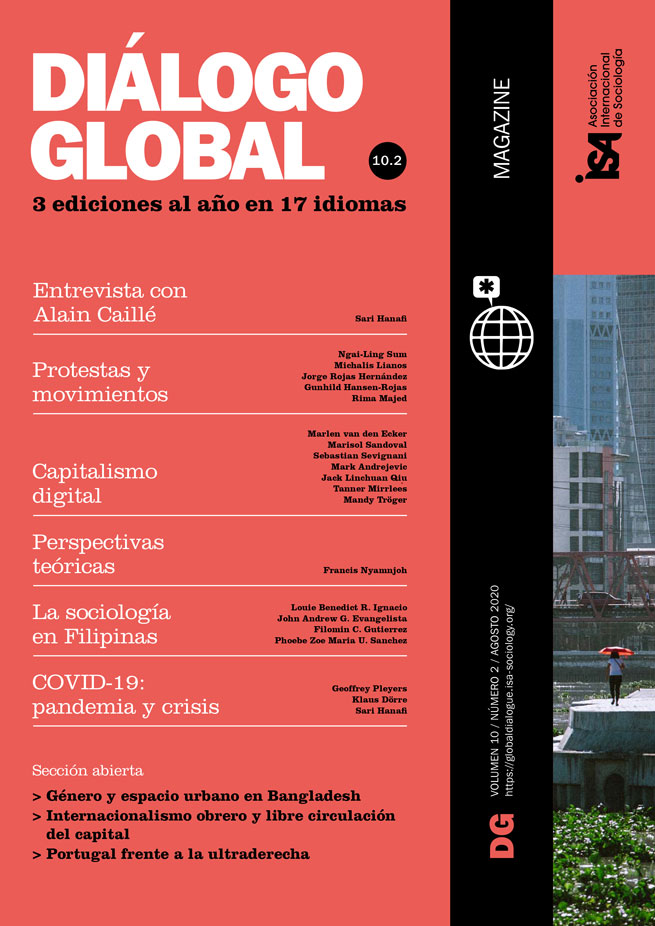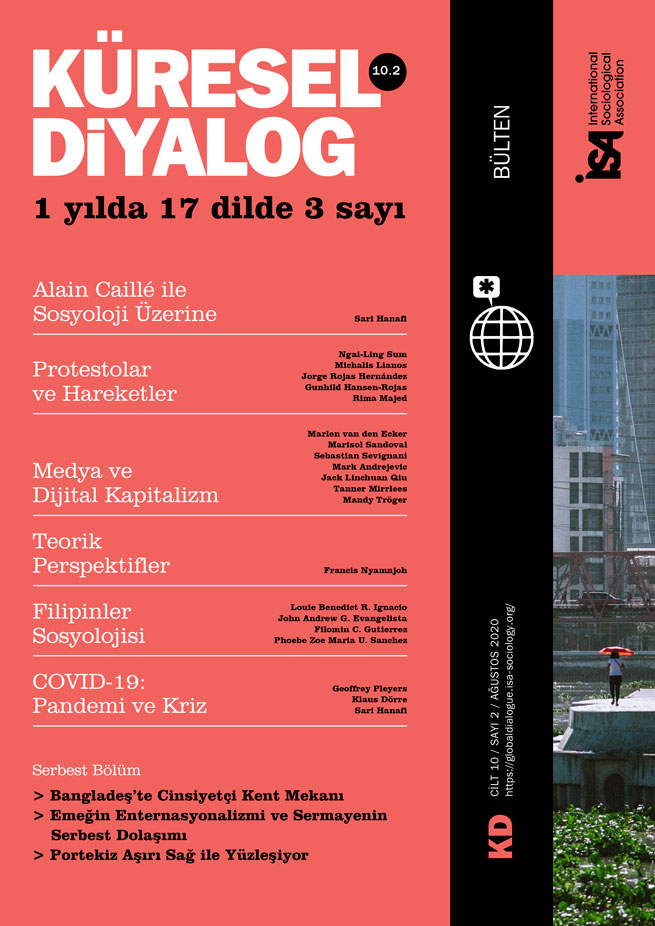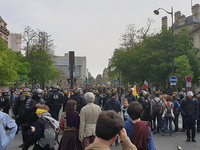Social Awakening Against Neoliberal Inequalities

June 26, 2020
The current social protests in Chile (estallido social) are creatively accompanied by graffiti, murals, music, poetry, songs, meetings, and collective debate. The historically accumulated discontent of Chileans is thus given expression in a new kind of aesthetic. Decades of dissatisfaction, social abuse, discrimination, and social injustice are denounced in slogans like: “Chile has awakened!,” “... until human dignity becomes an everyday habit!,” “Chile will bury neoliberalism!,” “I’ve lost my fear!,” “No more abuse!,” “Away with private pension funds!,” “The market does not protect social rights!,” “We are not at war!,” “New Constitution!,” “There will be no political agreement without us women!,” “We need a new democracy!,” “Free education for all!,” “Free and public water rights!,” “My biggest fear is that everything will remain the same!,” “Normality is the problem!,” “For the right to live in peace!”
A painful awakening
On October 18, 2019 Chile changed. The pent-up anger has been released in a way that is both massive and creative. Now, after four months of continuous protests, a new republican spirit can be felt, which is irreversible. After 40 years, Chileans are becoming aware of the negative effects of the prevailing mercantilist and unregulated neoliberal model: social inequality, privatization of basic services, pensions, education, health care, and natural resources. The government has responded with police violence. More than 400 people have lost their eyesight due to the use of firearms, women have been raped. Torture and thousands of arbitrary arrests have occurred. The United Nations High Commissioner for Human Rights and other international organizations have confirmed that human rights are being massively violated and have called on the Chilean government to act proactively.
This awakening of Chilean society is not spontaneous, but the result of a complex process of built-up negative experiences and social dissatisfaction. After 40 years, the neoliberal system is exhausted and has culminated in a crisis, laying bare the irreversible damage from which the country will have a hard time recovering. Through the protests and a new flood of information, a new emancipatory consciousness is developing among Chileans.
Social and ecological inequalities and social movements
Social and structural inequalities in Chile grew faster than the promises of the market: low wages, inhumane pensions, privatization of the health and education system and a subsequent hike in fees, the precariousness of work, overpriced and privatized basic services, incredibly high costs of living, and an extreme concentration of wealth. In addition, young people have a difficult time entering the labor market, discrimination against women still exists, and the rights of indigenous peoples are still not being recognized. Little public participation, environmental problems and vulnerability to climate change, as well as water and resource scarcity result in additional problems regarding the provision of basic services.
These policies of privatization and individualization necessarily lead to a loss of meaning as well as uncertainty about the future. Protests and the emergence of new social movements are the result: 2006 saw the “penguin protests” – the movement of high-school students demanding a better public education system. An influential and massive student movement with demands for free university education formed in 2011. Both movements resonated broadly with the public. In 2018, the “No+APF” movement against the privatized pension system emerged. Ethnic movements and especially the representatives of the Mapuche communities are demanding their recognition in the constitution, the return of land, and certain autonomy as ethnic minorities. There are also new environmental and protest movements against the construction of megaprojects that result in the loss of ecosystems and habitat. The Hydro-Aysen megaproject in Patagonia became the most important symbol of this movement. In addition, citizen protests against environmental policies are seen in the so-called abandoned areas (zonas de sacrificio) in the municipalities of Quintero, Puchuncaví, and Coronel, which are extremely contaminated by high industrial density and have enormous disease rates. 2019 was also the year of the women’s movement against sexual abuse and for gender equality. These examples show that Chilean society has been gradually shaken up, realizing the dark sides of the celebrated model, and has begun to organize proactively from below.
Social reforms and a social contract/pact
In this situation, Chile needs profound social reforms towards a welfare state that compensates the existing deficiencies and meets the demands of the protesters. An association of various social organizations, the Mesa de Unidad Social, has demanded a social pact with the active participation of civil society under the slogan “without social justice there will be no peace.” On December 22, 2019 the majority of Chilean municipalities organized a successful citizens’ survey regarding the urgent problems of the population in which over 2.5 million Chileans actively participated with the following results: 91.3% want a new constitution; 89.9% are willing to participate in a referendum in April 2020; the large majority is in favor of a democratically elected constituent assembly. The referendum also showed three important priorities: better pensions, a better health care system, and guaranteed access to an improved public education system. A social pact would thus be an essential contribution to solving the current crisis of the neoliberal model.
These social demands were already part of twentieth century democracies, but were partly dismantled by global neoliberal strategies. As current global developments and discussions show, these historical achievements of the welfare state must be taken up again in the twenty-first century and reintegrated into current policies in order to guarantee people’s quality of life, counteract right-wing populism, and secure the development of countries.
A legitimation crisis of the state and political parties
The social crisis revealed the weaknesses of the state created by neoliberalism. Neoliberalism had always called for a minimal state and the privatization and individualization of society. The devastating consequences of this doctrine are felt today. The conservative government of Chile is overwhelmed and reacts with violence, the declaration of a state of emergency, and oppression, without clearly differentiating between the broad democratic peaceful citizen protests and the looting, arson, and destructive violence of small, isolated groups.
In this context, the Centro de Estudios Públicos published the following survey results on Chileans’ confidence in their institutions in December 2019: only 5% trust the government, 3% the parliament, 2% the political parties, and 8% the judiciary. The vast majority of people reject violence as a form of protest as well as police violence. 67% call for a new constitution, 56% believe that this new constitution is an important instrument to solve the current problems. 87% are in favor of leaders who are able to promote social and political dialogue and consensus. According to the respondents, the following three issues need to be urgently addressed by the government: 64% named pensions, 46% health, and 38% education. The survey highlights the legitimacy of democracy as a political system.
For a new constitution and renewed democracy
On November 15, 2019, the strong and permanent social protests led government and opposition to agree on a referendum on October 25, 2020 on the creation of a new constitution. The representatives who will formulate this new constitution will be elected on April 11, 2021 and must meet three important criteria: a balance between men and women, non-affiliation to political parties, and representation of indigenous minorities.
With this plebiscite and the associated strategies for the future, Chile has a unique historical opportunity to solve existing political and social problems peacefully and democratically with the participation of all social actors. Still, one potential obstacle is the refusal of the conservative sector to support this process with the aim to prevent a new constitution, the modernization of the institutions and the pension, health and education systems, and thus to maintain the existing power and market structures. It is to be hoped that the demands of the citizens’ movements will ultimately be reflected in a peaceful and democratic process and a successful plebiscite with broad participation by all sectors.
Jorge Rojas Hernández, Water Research Center for Agriculture and Mining (CRHIAM), Chile <jrojas@udec.cl>
Gunhild Hansen-Rojas, Universidad de Concepción, Chile <hansen-rojas@udec.cl>


